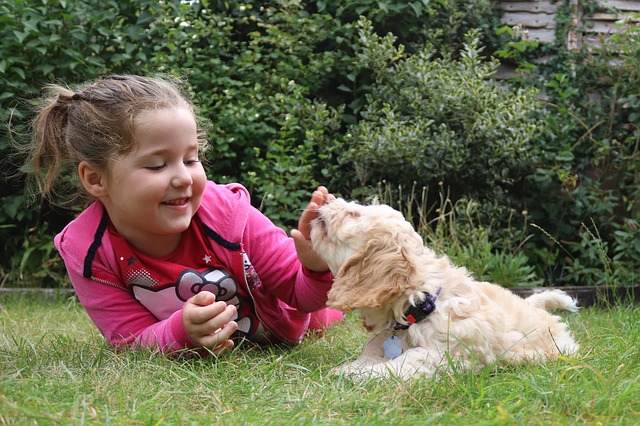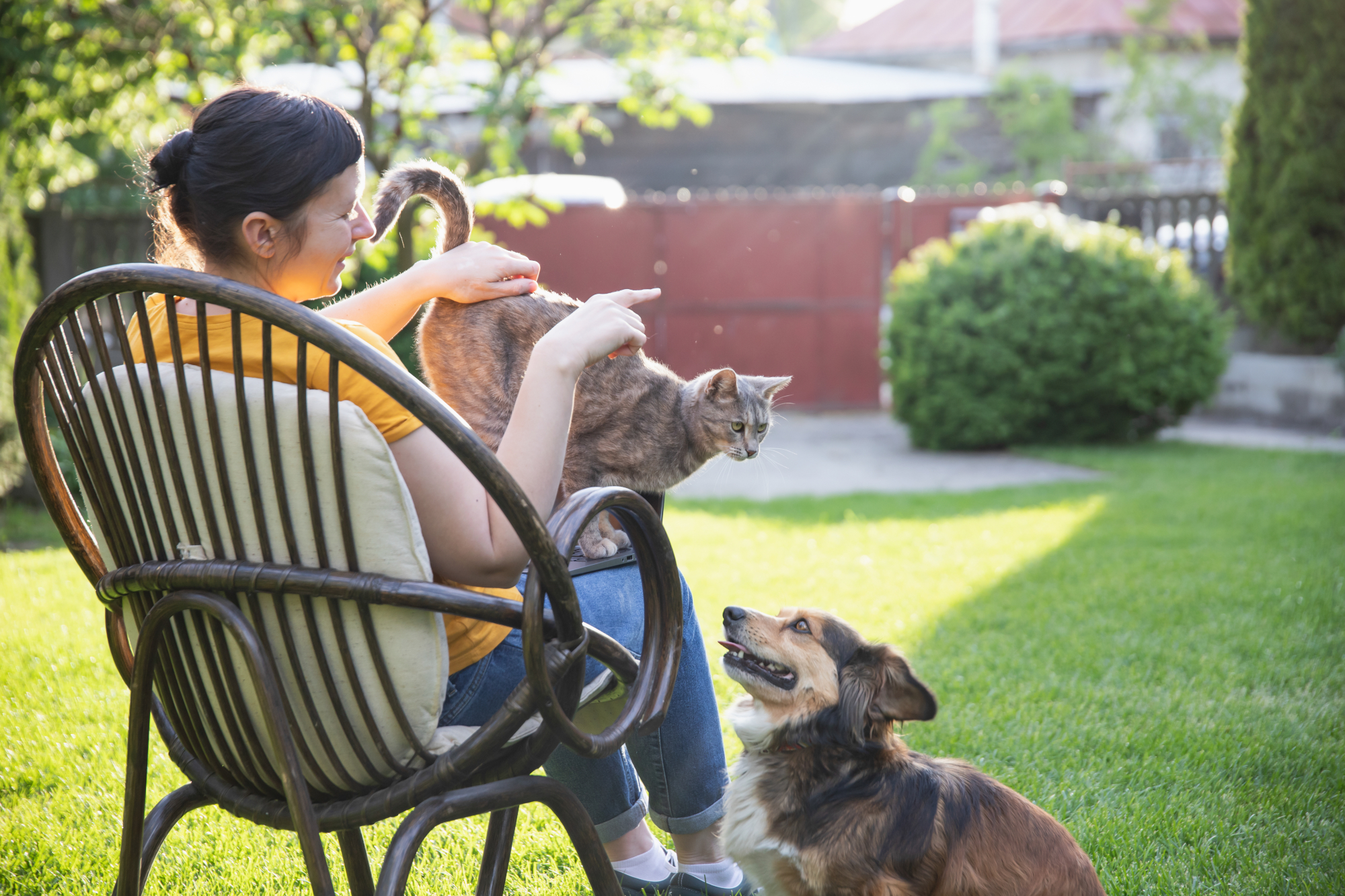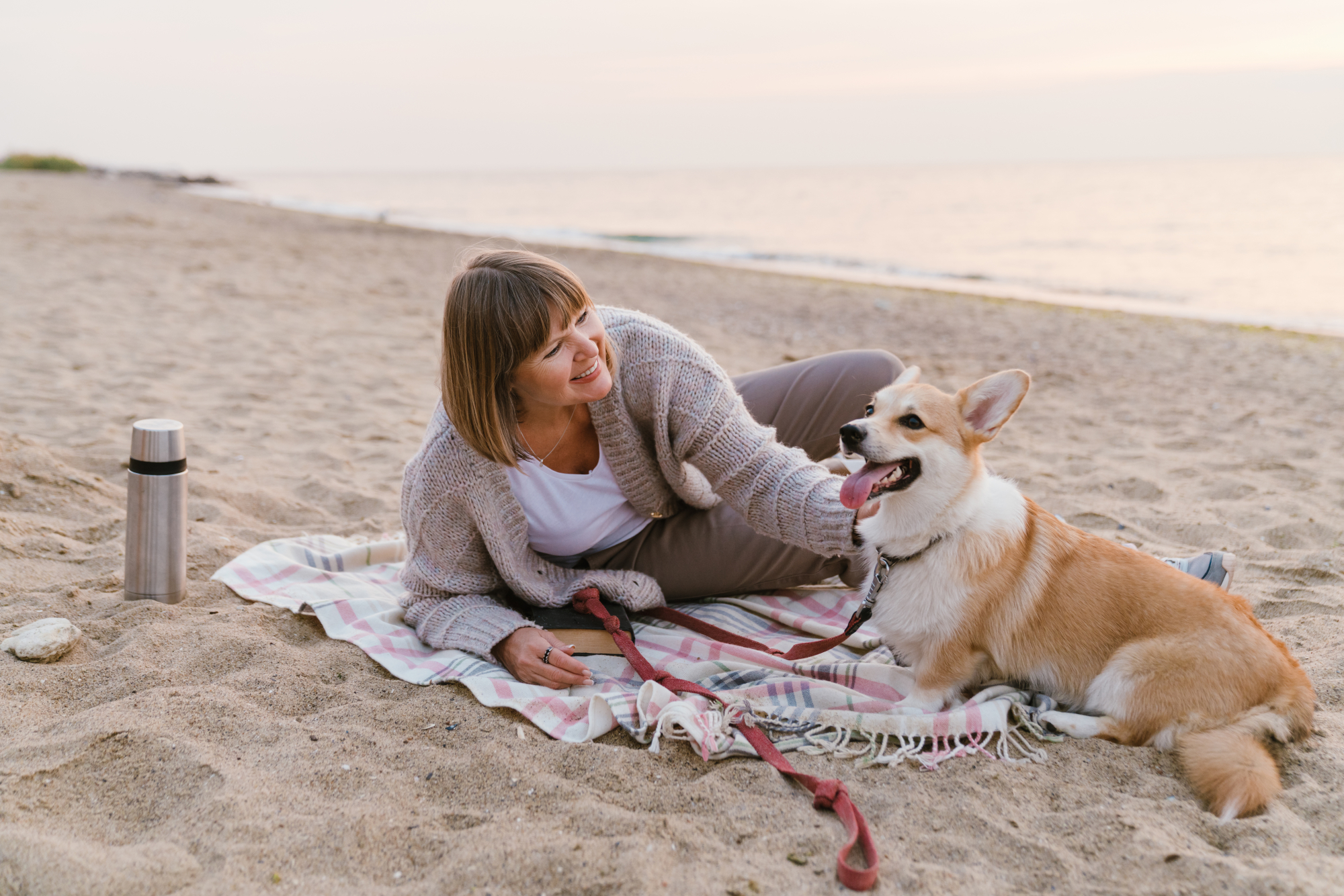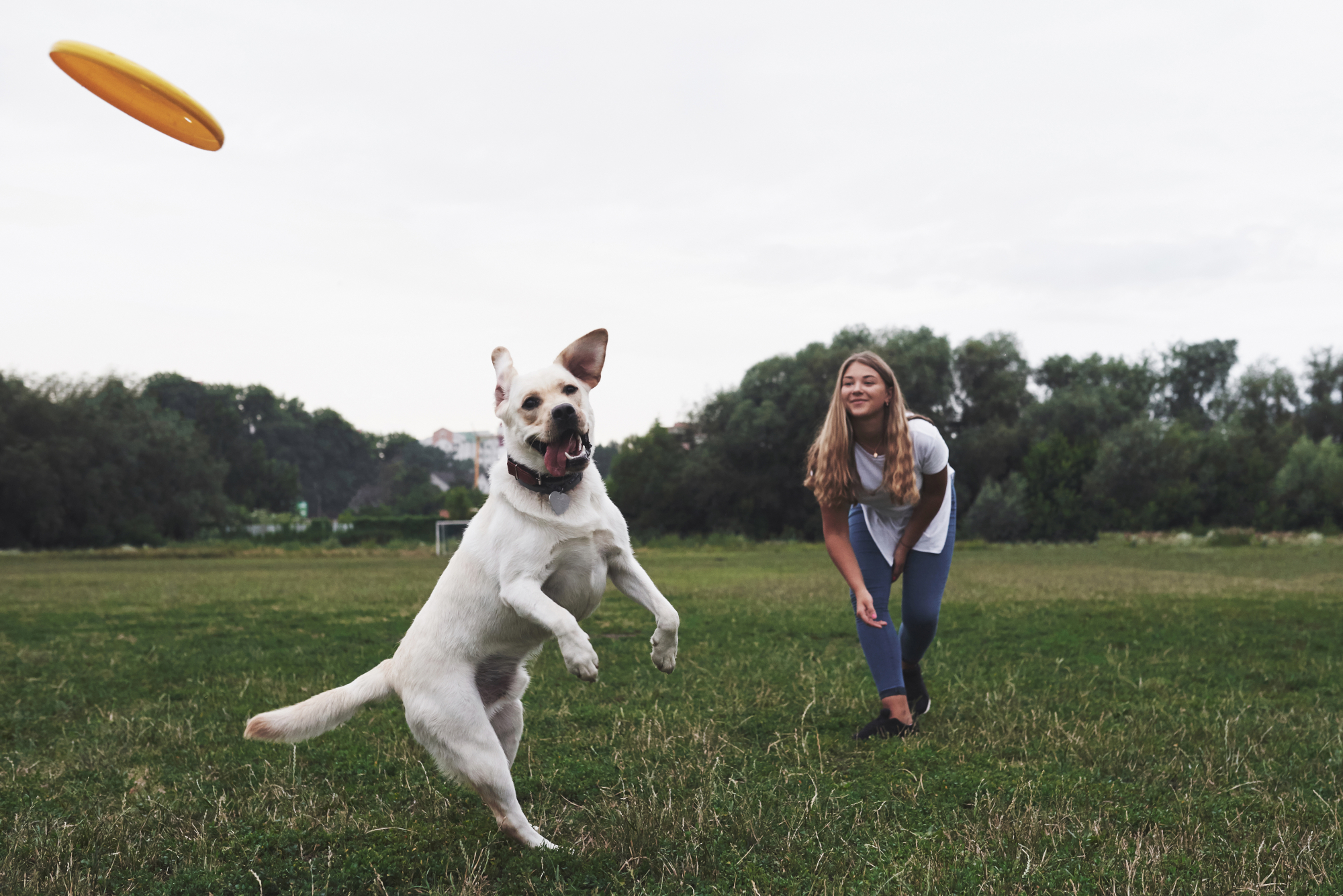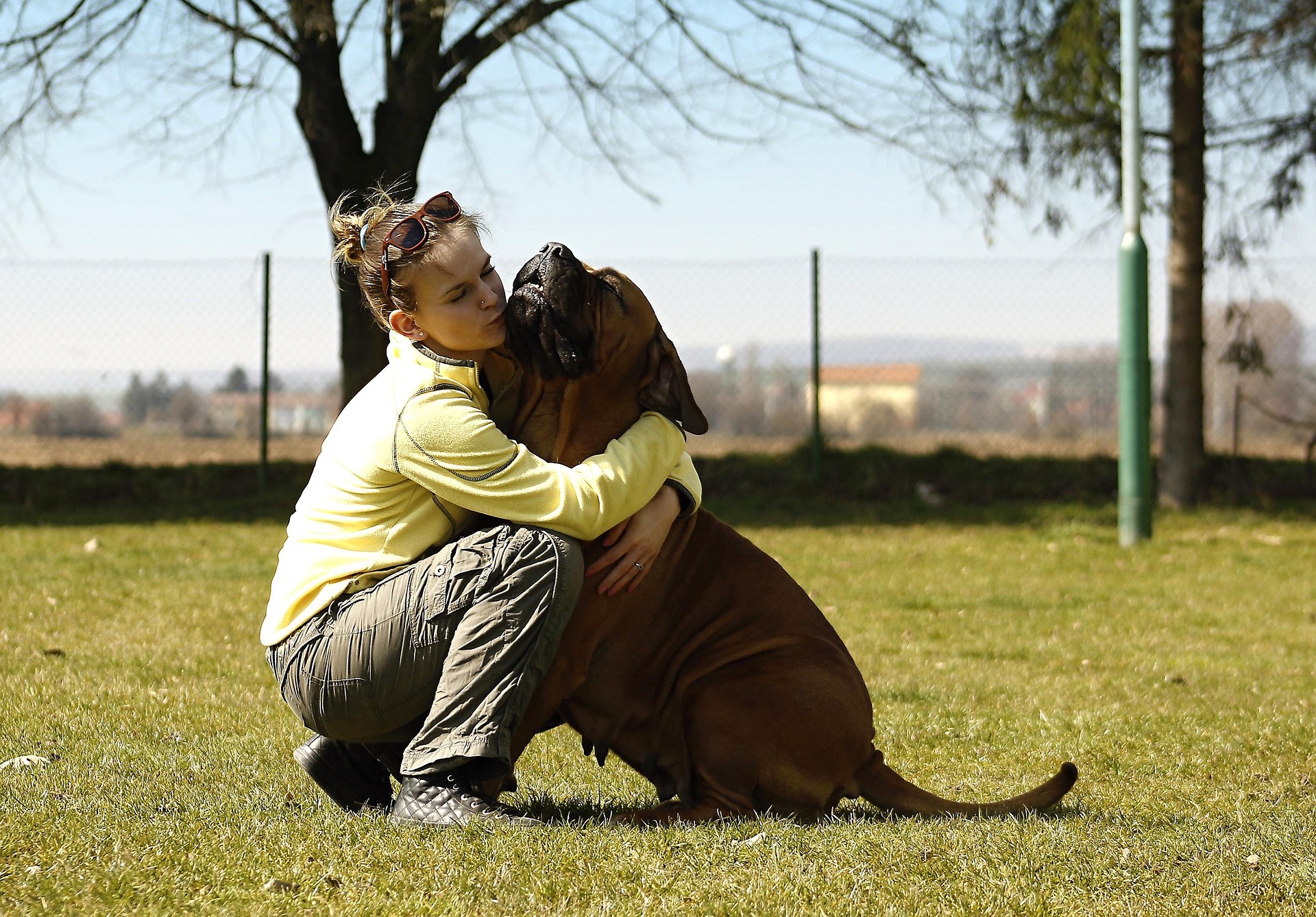Do you have children in your life who love dogs as much as you do? If you do and your family is ready to raise one, your first family dog should be an affectionate, kid-friendly companion. It’s a good idea to choose a breed that will be patient even if tiny hands pester them.
Some dog breeds make good family dogs because they have mild temperaments, but there are other considerations to keep in mind when choosing your new pet. This includes your family’s lifestyle.
Characteristics to Consider When Choosing a Dog
- Size – Is a small dog a good choice for your family, or would a medium or large dog be better? Think about where you live and how you are going to exercise and raise your new pet. Do you have a small apartment? Do you have a house with a big yard? Do you live in the city with a dog park nearby or further out in the countryside? Large dogs are, in some cases, very calm and easy-going but need lots of room to move around, while some small dogs can be very high-strung and excitable but don’t need a lot of space in which to live in or exercise.
- Temperament – It’s certainly best to choose a dog with a mild temperament and lots of tolerance, especially if your children are too young to understand exactly how gentle they need to be with animals. Even if your kids are older, you need to make sure your new dog has an agreeable personality and can form strong bonds with everyone in the family.
- Vigor – Will your new dog be able to keep up with your active family? Will your family be able to keep up with your new, active dog? Make sure you choose a pooch that will be a good fit with your family’s lifestyle. There is no sense in choosing a dog who requires more exercise than your family is able to supply. A dog who needs and wants to run off their energy but has no opportunity to do so on a regular basis will become very unhappy, anxious, and even overweight.
Questions to Ask the Breeder or the Caregiver at an Animal Shelter
Depending on whether you are choosing your new dog from a licensed breeder or from an animal shelter, there are important questions to ask before you finally decide:
- Is this dog gentle and will he be friendly to everyone in the family? Some dogs become attached to only one person, or will prefer only males or only females, or only adults.
- How much care does this breed need? If they are a long-hair who requires lots of grooming, drools all over everything, or sheds a lot of hair, you must decide if you can handle the dog care he or she needs or not.
- Will this dog require a lot of exercise or will they often expect to be carried around in your arms? If you are frequently carrying a toddler around, the addition of a little dog in your life may be an unreasonable burden. You may be happier taking a long walk twice a day with a big dog, or you may not be able to work that much exercise into your busy schedule. Be realistic.
- Will he or she get along with other pets? This question is particularly important if you live in a multiple pet household, but even if you don’t, you may want to have another pet someday.
- How old is the dog? A puppy will need lots of training, but will probably adjust to your family very quickly. An older dog will already be trained but may not fit into the family so easily and may not feel comfortable with visitors. If he or she is a senior dog, they may have health issues on the horizon, meaning they will need to see a veterinarian more often.
Popular Kid-Friendly Dog Breeds
There are many appropriate choices of kid-friendly dog breeds that you can safely invite into your family. Here are eight good choices in no particular order:
- Bulldog – This breed is known to be patient, docile, and friendly, and will get along well with kids and other pets. Because they are smaller breeds, they can be happy in an apartment or a large house. For these brachycephalic breeds with short noses and flat faces, extra care is needed for the care of their teeth, but their coats are easy-care (so long as they’re not overly exposed to warm weather), and they don’t require a lot of exercise.
- Beagle – These dogs are smart, sociable, friendly, and happy, and they love being outside. They are small and can be carried, and get along well with children and other pets. Expect them to shed and require frequent bathing.
- Collie – All collies, from border to bearded, are gentle and easy to train, and very protective of their families and love children. Their long hair requires regular grooming. They also require a great deal of exercise and will not be happy cooped up indoors all of the time, given that the Collie is bred to be a herding dog.
- Newfoundland – This large breed loves and protects children, and they are kind and gentle dogs. Expect lots of shedding and daily grooming, especially during the spring and fall. Although they need lots of room, you can train them to stay in rooms that are easy to clean and, fortunately, they are easy to train. They are also great swimmers and will protect their family in the water.
- Irish Setter – These sociable dogs, easily identified by their red coats, are friendly, energetic, love children, and love their families. They need lots of exercise and are sometimes anxious if left alone for long stretches of time.
- Poodle – Despite popular culture portraying them as over-stylized, poodles are actually one of the smartest, most obedient, and gentlest breeds of dogs. Their size ranges from miniature to standard and so you can pick the best size for your home. They are devoted to the family, good with children, and get along well with other pets. Find a good dog groomer as their coats must be cared for properly and regularly. This is the breed you can consider if you or your children suffer from allergies, as there is very little shedding or dandruff from their coats. They love swimming, running, and retrieving.
- Labrador Retriever – This breed of dog is very smart, very easy to train, gentle, loving, and playful. They need lots of exercise, lots of room, and love to swim. They are strong and obedient, good with children and other animals, and their short coats require very little care.
- Bull Terrier – These dogs love children and adults, and they are good with young children who are still learning how to treat pets. They love to be indoors with the family but still need lots of exercise in the yard or on walks, and their short, flat coats require very little care.
There are also many other good family dogs aside from our list including the English Setter, Golden Retriever, Shepherds, and Boxers, among many others. You can check with your veterinarian, local pet breeders, and animal shelter staff who will do their best to steer your family towards the most appropriate pooch.
Keep These Additional Ideas in Mind When Choosing a Dog
- When a dog is spayed or neutered, it won’t make a hostile dog safe—only safer. Spay and neuter should be pursued for health reasons, but it is training and good dog care that can truly help prevent aggression problems. Lessening aggression is not the point of spaying and neutering.
- Teething puppies will be happy to teeth on toys but may try and chew on kids and your furniture as well. Good training will help the puppies to learn not to use their teeth during play behavior, but patience and time are both needed to get them fully trained. Adult and senior dogs are gentler than puppies because they don’t jump around as much, and are usually calmer than they were as puppies no matter what breed they are.
- Holidays are the worst times of the year to get a new dog. The last thing you should do when choosing your pet is be impulsive.
- Any dog already socialized to be around children may be safer than one who is not.
- It is important to teach both your children and your dog how to behave in a pet household so that your new dog won’t be thoughtlessly harmed by the kids, or vice versa.
Owning and raising a new family dog is a big responsibility! That’s why for any family with children choosing their first dog, it’s best to select from the many kid-friendly breeds that make good, gentle companions for life.
Creative Commons Attribution: Permission is granted to repost this article in its entirety with credit to Hastings Veterinary Hospital and a clickable link back to this page.

